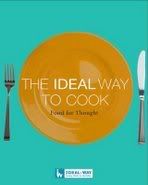
My brother fell in love when he was only ten years old. In fact, it was love at first sight. The moment he set eyes on his Christmas gift that year, there was no looking back. His first guitar opened up a whole new world for him, and he would play for hours, lost in another world. Nothing much has changed. He still locks himself in his room and enters a world where unspeakable joy threads its way through his fingers and into the strings of his guitar. Nothing else can lift him from the doldrums like an hour spent strumming on his handmade acoustic guitar. It was, and still is, a place to go when he needs to fill his tank. But it's more than that: music feeds his soul, nourishes every part of him, and when he dips his hand in the well of creative exploration, his spirit expands and lets in more light.
Of course, he would wave away my poetic ramblings. "It just makes me feel good, that's all, pure and simple," he would say.
For one breathless moment, there are no need for words, no expectations, either from the outer world or himself, and when he's on stage, he experiences a deeper connection with others.
It should come as no surprise, then, that his son, Christian, is a gifted drummer. Already, at eight years old, he has knocked the socks off of older, more experienced drummers. "How did he learn to play like that?" they ask. His father merely shakes his head and says, "I don't know, he just picked up the sticks one day, and away he went!"
Christian has autism, and according to the Autism Canada Foundation, "it has been noted time and again that autistic children evidence unusual sensitivities to music. Some have perfect pitch, while many have been noted to play instruments with exceptional musicality."
Which begs the question: Why is music therapy so effective in unlocking doors that have hitherto been closed within a developmentally, emotionally, or physically challenged person? Well, "music unlocks abilities" within a person. A trained music therapist will carefully assess the person and determine his or her particular needs and strengths. By creating a safe environment, where words are unnecessary, improvisation is encouraged, and creativity is given room to flourish, amazing things unfold. A nonverbal child speaks for the first time, or makes eye contact, for example.
Who benefits from music therapy? For those with acquired brain injury, autism, and other developmental disabilities, music can give them permission to explore their creativity, and an open space to communicate and interact with others.
"Music can heal. It can do more than ease the pain. It can throw a lifeline to kids who can't be reached in any other way." Paul McCartney
To learn more about music therapy, check out the Canadian Association for Music Therapy (CAMT Conference 2009, A Song for Everyone: The Voice of Music Therapy, May 7-9, 2009); Canadian Music Therapy Trust Fund; the Laurier Centre for Music Therapy Research; and OnWellness.info.













































10 comments:
Actually, it seems that one of the reasons music helps non-verbal children, is because music, including singing, come from a different area of the brain than pegular speech.
Thank you for your comment! If anyone would like to read more about 'Music & the Brain,' check out http://tinyurl.com/4m8mw9.
It's a fascinating topic - something I would have loved exploring at length.
Thanks, too, for visiting our blog again and taking the time to leave a comment!
As a former musician myself I have great appreciation for this post! I have just been preparing a training on Reactive attachment disorder and learned that music can also play an important part in attachment. It's amazing how powerful some of the things we often take for granted can be!
Often an emotional balm, "Music hath charms to soothe the savage breast … “.
I subscribed to this blog for, among other reasons, its descriptively well written philosophical and educational content, and purpose.
This blog does not disappoint.
Thank you, fab, for your insightful comments! If anyone would like to read about Reactive Attachment Disorder, check out: http://www.radkid.org. I agree that if we remain open to the wonderful opportunities and gifts that surround us, amazing results occur.
Pierre, thank you for your kind words and wonderful quote!
My daughter who has Down syndrome benefited from Music Therapy for many years--now my oldest daughter is in school to become a Music Therapist! Thanks for a great post.
Hello from Texas!! Passed on your blog to a Canadian friend. Think it is very insightful. I have a brother with Down syndrome and he also benefitted from music therapy. Keep the great stories coming!
Thank you, Terri, and Dawali, for your kind words. That's wonderful, Terri, that your daughter has chosen such a rewarding career - one that will help others empower themselves.
"...One must first believe, on a fundamental level, in the ability of music to do more than just entertain."
– Andrew A. Stewart
subscribing to this post was a great idea! now, I can regularly look forward to receiving and reading its insightful, well written content.
pierre, you said it well, "This blog does not disappoint."
Thank you for subscribing to the blog, Yvonne, and I'm glad you're enjoying it!
Post a Comment